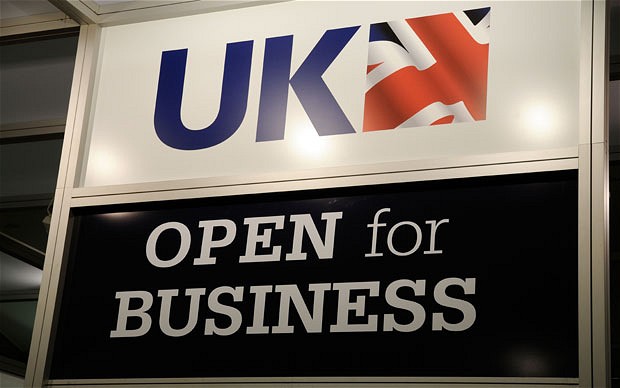Impact of Global Forces on UK Business Organisations
 Global forces impacting UK businesses include, but not limited to increasing scale of international trade, increasing levels of multiculturalism in UK organisations, increasing levels of inter-dependency of national economies and others.
Global forces impacting UK businesses include, but not limited to increasing scale of international trade, increasing levels of multiculturalism in UK organisations, increasing levels of inter-dependency of national economies and others.
The impact of global forces on UK Business Organisations can be effectively analysed using PESTEL analysis where the abbreviation stands for political, economical, social, technological, ecological, and legal factors impacting businesses. The following table contains the application of PESTEL analysis in relation to businesses operating in the UK.
Political
|
Economical
|
Social
|
Technological
|
Ecological
|
Legal
|
The case studies of Martin Lishman and Aquaco mentioned above represent a few cases where UK businesses benefit from international trade. However, in total UK businesses are becoming disadvantaged in international trade with the volume of imports to the UK constantly suppressing the levels of exports from the UK for a numbers of years (Jones and Evans, 2013). The main reasons for this tendency relate to competitive advantage possessed by importers to the UK such as China and India and this competitive advantage is primarily associated with low labour costs.
The impact of increasing level of multiculturalism in workforce as another global force on UK businesses in not straightforward. On one hand, multiculturalism can benefit businesses in the UK through offering fresh and varying perspectives to traditional business problems.
On the other hand, high levels of multiculturalism in the workplace can generate misunderstandings due to cross-cultural differences and this can have negative impact on the performance of UK businesses.
Due to the UK membership of the EU local businesses in the UK are directly impacted by EU policies and legislations. For example the EU Liberalisation Policy introduced in 1993 requires businesses in UK, as well as, in any other EU member country are faced with competition within the EU in equal terms with local businesses. In simple terms, while imported goods to the UK are usually subjected to customs tariffs by the government in order to protect local producers, no such tariffs can be imposed to goods that are being imported from within the EU.
Moreover, according to EU policies, businesses in the UK aiming to merge need to seek the approval of the EU if the combined turnover of businesses does exceed specific threshold of sales that has been specified by the EU. Additional EU policies that impact businesses in the UK relate to cartels, intitrust, state aid and others.
References
Jones, P. & Evans, J. (2013) “Urban Regeneration in the UK: Boom, Bust and Recovery” SAGE Publications
